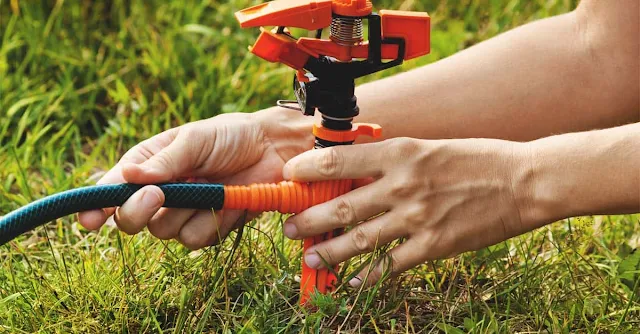A Guide To Sprinkler Winterization
Any property owner with a sprinkler system must specifically winterize their sprinklers. In this article, we will discuss every aspect of sprinkler winterization, including what, how, why, when, and even who! Keep reading to learn more.
What Is Sprinkler Winterization?
The obvious definition of sprinkler winterization is the process of prepping your property's irrigation system for temperatures below freezing. However, this does not provide a complete explanation! Ultimately, sprinkler winterization serves to avoid any harm to your irrigation system that could be caused by water freezing inside the system.
In addition, while many property owners do not now include sprinkler winterization in their annual routine, it is a basic and necessary aspect of property management and maintenance. By putting in the time and money to get your sprinkler system ready, you can save a lot of time and money in the long run.
How Is a Sprinkler System Winterized?
To get your sprinkler system ready for winter, you need to make sure that all of the water is drained from it, that it is disconnected from its water source, and that, in some cases, certain parts are taken off and put away.
Depending on your system, the winterization process will appear a bit different; thus, it is necessary to consult an expert. Also, water can pool in every part of your system, which means that if the water freezes, every part of your irrigation system could break.
Typically, winterization consists of the following measures:
- Turn off the water supply to the sprinklers.
- Drain the system (either manually or automatically, depending on the system)
- "Blow Out" the air compressor to get rid of any remaining water.
*If you don't know what you're doing, don't try to "blow out" the air compressor yourself, because too much air pressure could severely damage the system.
Why Should I Winterize My System?
Even though we've discussed the primary reasons why you must winterize your sprinkler system in New Jersey, it never hurts to reiterate them. In the most fundamental sense, sprinkler winterization guarantees that your irrigation system is always in efficient operating condition. Sprinkler winterization keeps sprinklers and water systems from breaking down in the worst possible ways.
As previously mentioned, water expands when frozen. Therefore, if any component of your sprinkler system is filled with water, the water will expand as it freezes and damage the component it's residing in. In some cases, this may only result in a few spots of limited, repairable damage; however, non-winterized sprinkler systems are far more likely to require replacement or extensive repair, resulting in astronomically expensive and required expenditures.
When Should I Winterize My Sprinkler System?
While the service's name suggests otherwise, sprinkler winterization often occurs in the fall. This is due to the fact that your system must be winterized before the first freeze of the winter months. Occasionally, this can occur in our region as early as September.
There are two primary strategies for the winterization of sprinkler systems. First, you can select a day at the end of summer to complete watering your property and winterize your sprinkler system prior to the onset of subfreezing temperatures. You risk drowning your grass if you use this strategy after winterizing your irrigation system.
The alternative approach is to monitor the weather closely! Examine the monthly forecasts and take notice of the dropping temperatures. Schedule your winterization when you anticipate freezing temperatures. With this procedure, you must allow sufficient time to schedule the winterization and have it carried out. (You shouldn't schedule winterization the day before a forecasted freeze in case your service provider is already booked.)
Who Should Winterize My Sprinkler System?
You may be able to winterize your irrigation system on your own if you have a thorough understanding of the system and the procedures and equipment required to complete the operation. However, your best line of action is to employ reputable pros.

